- Home
- D. H. Lawrence
Life with a Capital L Page 19
Life with a Capital L Read online
Page 19
A big young Indian came and pushed his face under my hat to see who or what I was.
‘Buenos!’
‘Buenos!’
‘Qué quiere?’
‘No hablo español.’
‘Oh, only English, eh? You can’t come in here.’
‘I don’t want to.’
‘This Indian church.’
‘Is it?’
‘I don’t let people come, only Apache, only Indian.’
‘You keep watch?’
‘I keep watch, yes; Indian church, eh?’
‘And the old man preaches?’
‘Yes, he preaches.’
After which I stood quite still and uncommunicative. He waited for a further development. There was none. So, after giving me another look, he went to talk to other Indians, sotto voce, by the door. The circle was complete; groups stood behind the squatting ring, some men were huddled in blankets, some sitting just in trousers and shirt, in the warmth near the fire, some wrapped close in white cotton sheets. The firelight shone on the dark, unconcerned faces of the listeners, as they chewed gum, or ate bread, or smoked a cigarette. Some had big silver ear-rings swinging, and necklaces of turquoise. Some had waistcoats all bead braids. Some wore store shirts and store trousers, like Americans. From time to time one man pushed another piece of wood on the fire.
They seemed to be paying no attention; it all had a very per-functory appearance. But they kept silent, and the voice of the old reciter went on blindly, from his lifted, bronze mask of a face with its wide-opened lips. They furl back their teeth as they speak, and they use a sort of resonant tenor voice that has a plangent, half-sad, twanging sound, vibrating deep from the chest. The old man went on and on, for hours, in that urgent, far-off voice. His hair was grey, and parted, and his two round plaits hung in front of his shoulders on his shirt. From his ears dangled pieces of blue turquoise, tied with string. An old green blanket was wrapped round above his waist, and his feet in old moccasins were crossed before the fire. There was a deep pathos, for me, in the old, mask-like, virile figure, with its metallic courage of persistence, old memory, and its twanging male voice. So far, so great a memory. So dauntless a persistence in the piece of living red earth seated on the naked earth, before the fire; this old, bronze-resonant man with his eyes as if glazed in old memory, and his voice issuing in endless plangent monotony from the wide, unfurled mouth.
And the young men, who chewed chewing-gum and listened without listening. The voice no doubt registered on their under-consciousness, as they looked around, and lit a cigarette, and spat sometimes aside. With their day-consciousness they hardly attended.
As for me, standing outside, beyond the open entrance, I was no enemy of theirs; far from it. The voice out of the far-off time was not for my ears. Its language was unknown to me. And I did not wish to know. It was enough to hear the sound issuing plangent from the bristling darkness of the far past, to see the bronze mask of the face lifted, the white, small, close-packed teeth showing all the time. It was not for me, and I knew it. Nor had I any curiosity to understand. The soul is as old as the oldest day, and has its own hushed echoes, its own far-off tribal understandings sunk and incorporated. We do not need to live the past over again. Our darkest tissues are twisted in this old tribal experience, our warmest blood came out of the old tribal fire. And they vibrate still in answer, our blood, our tissue. But me, the conscious me, I have gone a long road since then. And as I look back, like memory terrible as bloodshed, the dark faces round the fire in the night, and one blood beating in me and them. But I don’t want to go back to them, ah, never. I never want to deny them or break with them. But there is no going back. Always onward, still further. The great devious onward flowing stream of conscious human blood. From them to me, and from me on.
I don’t want to live again the tribal mysteries my blood has lived long since. I don’t want to know as I have known, in the tribal exclusiveness. But every drop of me trembles still alive to the old sound, every thread in my body quivers to the frenzy of the old mystery. I know my derivation. I was born of no virgin, of no Holy Ghost. Ah, no, these old men telling the tribal tale were my fathers. I have a dark-faced, bronze-voiced father far back in the resinous ages. My mother was no virgin. She lay in her hour with this dusky-lipped tribe-father. And I have not forgotten him. But he, like many an old father with a changeling son, he would like to deny me. But I stand on the far edge of their firelight, and am neither denied nor accepted. My way is my own, old red father; I can’t cluster at the drum any more.
Taos (1922)
The Indians say Taos is the heart of the world. Their world, maybe. Some places seem temporary on the face of the earth: San Francisco, for example. Some places seem final. They have a true nodality. I never felt that so powerfully as, years ago, in London. The intense powerful nodality of that great heart of the world. And during the war that heart, for me, broke. So it is. Places can lose their living nodality. Rome, to me, has lost hers. In Venice one feels the magic of the glamorous old node that once united East and West, but it is the beauty of an after-life.
Taos pueblo still retains its old nodality. Not like a great city. But, in its way, like one of the monasteries of Europe. You cannot come upon the ruins of the old great monasteries of England, beside their waters, in some lovely valley, now remote, without feeling that here is one of the choice spots of the earth, where the spirit dwelt. To me it is so important to remember that when Rome collapsed, when the great Roman Empire fell into smoking ruins, and bears roamed in the streets of Lyon and wolves howled in the deserted streets of Rome, and Europe really was a dark ruin, then, it was not in castles or manors or cottages that life remained vivid. Then those whose souls were still alive withdrew together and gradually built monasteries, and these monasteries and convents, little communities of quiet labour and courage, isolated, helpless, and yet never overcome in a world flooded with devastation, these alone kept the human spirit from disintegration, from going quite dark, in the Dark Ages. These men made the Church, which again made Europe, inspiring the martial faith of the Middle Ages.
Taos pueblo affects me rather like one of the old monasteries. When you get there you feel something final. There is an arrival. The nodality still holds good.
But this is the pueblo. And from the north side to the south side, from the south side to the north side, the perpetual silent wandering intentness of a full-skirted, black-shawled, long-fringed woman in her wide white deerskin boots, the running of children, the silent sauntering of dark-faced men, bare-headed, the two plaits in front of their thin shoulders, and a white sheet like a sash swathed round their loins. They must have something to swathe themselves in.
And if it were sunset, the men swathing themselves in their sheets like shrouds, leaving only the black place of the eyes visible. And women, darker than ever, with shawls over their heads, busy at the ovens. And cattle being driven to sheds. And men and boys trotting in from the fields, on ponies. And as the night is dark, on one of the roofs, or more often on the bridge, the inevitable drum-drum-drum of the tomtom, and young men in the dark lifting their voices to the song, like wolves or coyotes crying in music.
There it is, then, the pueblo, as it has been since heaven knows when. And the slow dark weaving of the Indian life going on still, though perhaps more waveringly. And oneself, sitting there on a pony, a far-off stranger with gulfs of time between me and this. And yet, the old nodality of the pueblo still holding, like a dark ganglion spinning invisible threads of consciousness. A sense of dryness, almost of weariness, about the pueblo. And a sense of the inalterable. It brings a sick sort of feeling over me, always, to get into the Indian vibration. Like breathing chlorine.
The next day, in the morning, we went to help erect the great stripped maypole. It was the straight, smoothed yellow trunk of a big tree. Of course one of the white boys took the bossing of the show. But the Indians were none too ready to obey, and their own fat dark-faced boss gave counter-orders.
It was the old, amusing contradiction between the white and the dark races. As for me, I just gave a hand steadying the pole as it went up, outsider at both ends of the game.
An American girl came with a camera, and got a snap of us all struggling in the morning light with the great yellow trunk. One of the Indians went to her abruptly, in his quiet, insidious way.
‘You give me that Kodak. You ain’t allowed take no snaps here. You pay fine – one dollar.’
She was frightened, but she clung to her camera.
‘You’re not going to take my Kodak from me,’ she said.
‘I’m going to take that film out. And you pay one dollar fine, see?’
The girl relinquished the camera; the Indian took out the film.
‘Now you pay me one dollar, or I don’t give you back the Kodak.’
Rather sullenly, she took out her purse and gave the two silver half-dollars. The Indian returned the camera, pocketed the money, and turned aside with a sort of triumph. Done it over one specimen of the white race.
There were not very many Indians helping to put up the pole.
‘I never see so few boys helping put up the pole,’ said Tony Romero to me.
‘Where are they all?’ I asked. He shrugged his shoulders.
Dr West, a woman doctor from New York who has settled in one of the villages, was with us. Mass was being said inside the church, and she would have liked to go in. She is well enough known, too. But two Indians were at the church door, and one put his elbow in front of her.
‘You Catholic?’
‘No, I’m not.’
‘Then you can’t come in.’
The same almost jeering triumph in giving the white man – or the white woman – a kick. It is the same the whole world over, between dark-skin and white. Dr West, of course, thinks everything Indian wonderful. But she wasn’t used to being rebuffed, and she didn’t like it. But she found excuses.
‘Of course,’ she said, ‘they’re quite right to exclude the white people, if the white people can’t behave themselves. It seems there were some Americans, boys and girls, in the church yesterday, insulting the images of the saints, shrieking, laughing, and saying they looked like monkeys. So now no white people are allowed inside the church.’
I listened, and said nothing. I had heard the same story at Buddhist temples in Ceylon. For my own part, I have long since passed the stage when I want to crowd up and stare at anybody’s spectacle, white man’s or dark man’s.
I stood on one of the first roofs of the north pueblo. The iron bell of the church began to bang-bang-bang. The sun was down beyond the far-off, thin clear line of the western mesa, the light had ceased glowing on the piñon-dotted foot-hills beyond the south pueblo. The square beneath was thick with people. And the Indians began to come out of church.
Two Indian women brought a little dressed-up Madonna to her platform in the green starting-bower. Then the men slowly gathered round the drum. The bell clanged. The tomtom beat. The men slowly uplifted their voices. The wild music resounded strangely against the banging of that iron bell, the silence of the many faces, as the group of Indians in their sheets and their best blankets, and in their ear-rings and brilliant scarlet trousers, or emerald trousers, or purple trousers, trimmed with beads, trod the slow bird-dance sideways, in feet of beaded moccasins, or yellow doeskin moccasins, singing all the time like drumming coyotes, slowly down and across the bridge to the south side, and up the incline to the south kiva. One or two Apaches in their beaded waistcoats and big black hats were among the singers, distinguishable by their thick build also. An old Navajo chief was among the encouragers.
As dusk fell, the singers came back under a certain house by the south kiva, and as they passed under the platform they broke and dispersed; it was over. They seemed as if they were grinning subtly as they went: grinning at being there in all that white crowd of inquisitives. It must have been a sort of ordeal to sing and tread the slow dance between that solid wall of silent, impassive white faces. But the Indians seemed to take no notice. And the crowd only silently, impassively watched. Watched with that strange, static American quality of laissez-faire and of indomitable curiosity.
The Future of the Novel (1922–3)
You talk about the future of the baby, little cherub, when he’s in the cradle cooing; and it’s a romantic, glamorous subject. You also talk, with the parson, about the future of the wicked old grandfather who is at last lying on his death-bed. And there again you have a subject for much vague emotion, chiefly of fear this time.
How do we feel about the novel? Do we bounce with joy thinking of the wonderful novelistic days ahead? Or do we grimly shake our heads and hope the wicked creature will be spared a little longer? Is the novel on his death-bed, old sinner? Or is he just toddling round his cradle, sweet little thing? Let us have another look at him before we decide this rather serious case.
There he is, the monster with many faces, many branches to him, like a tree: the modern novel. And he is almost dual, like Siamese twins. On the one hand, the pale-faced, high-browed, earnest novel, which you have to take seriously; on the other, that smirking, rather plausible hussy, the popular novel.
Let us just for the moment feel the pulses of Ulysses and of Miss Dorothy Richardson and M. Marcel Proust, on the earnest side of Briareus; on the other, the throb of The Sheik and Mr Zane Grey, and, if you will, Mr Robert Chambers and the rest. Is Ulysses in his cradle? Oh, dear! What a grey face! And Pointed Roofs, are they a gay little toy for nice little girls? And M. Proust? Alas! You can hear the death-rattle in their throats. They can hear it themselves. They are listening to it with acute interest, trying to discover whether the intervals are minor thirds or major fourths. Which is rather infantile, really.
So there you have the ‘serious’ novel, dying in a very long-drawn-out fourteen-volume death-agony, and absorbedly, childishly interested in the phenomenon. ‘Did I feel a twinge in my little toe, or didn’t I?’ asks every character of Mr Joyce or of Miss Richardson or M. Proust. Is my aura a blend of frankincense and orange pekoe and boot-blacking, or is it myrrh and bacon-fat and Shetland tweed? The audience round the death-bed gapes for the answer. And when, in a sepulchral tone, the answer comes at length, after hundreds of pages: ‘It is none of these, it is abysmal chloro-coryambasis,’ the audience quivers all over, and murmurs: ‘That’s just how I feel myself.’
Which is the dismal, long-drawn-out comedy of the death-bed of the serious novel. It is self-consciousness picked into such fine bits that the bits are most of them invisible, and you have to go by smell. Through thousands and thousands of pages Mr Joyce and Miss Richardson tear themselves to pieces, strip their smallest emotions to the finest threads, till you feel you are sewed inside a wool mattress that is being slowly shaken up, and you are turning to wool along with the rest of the woolliness.
It’s awful. And it’s childish. It really is childish, after a certain age, to be absorbedly self-conscious. One has to be self-conscious at seventeen: still a little self-conscious at twenty-seven; but if we are going it strong at thirty-seven, then it is a sign of arrested development, nothing else. And if it is still continuing at forty-seven, it is obvious senile precocity.
And there’s the serious novel: senile-precocious. Absorbedly, childishly concerned with what I am. ‘I am this, I am that, I am the other. My reactions are such, and such, and such. And, oh, Lord, if I liked to watch myself closely enough, if I liked to analyse my feelings minutely, as I unbutton my gloves, instead of saying crudely I unbuttoned them, then I could go on to a million pages instead of a thousand. In fact, the more I come to think of it, it is gross, it is uncivilized bluntly to say: I unbuttoned my gloves. After all, the absorbing adventure of it! Which button did I begin with?’ etc.
The people in the serious novels are so absorbedly concerned with themselves and what they feel and don’t feel, and how they react to every mortal button; and their audience as frenziedly absorbed in the application of the author’s discoverie
s to their own reactions: ‘That’s me! That’s exactly it! I’m just finding myself in this book!’ Why, this is more than death-bed, it is almost post-mortem behaviour.
Some convulsion or cataclysm will have to get this serious novel out of its self-consciousness. The last great war made it worse. What’s to be done? Because, poor thing, it’s really young yet. The novel has never become fully adult. It has never quite grown to years of discretion. It has always youthfully hoped for the best, and felt rather sorry for itself on the last page. Which is just childish. The childishness has become very long-drawn-out. So very many adolescents who drag their adolescence on into their forties and their fifties and their sixties! There needs some sort of surgical operation, somewhere.

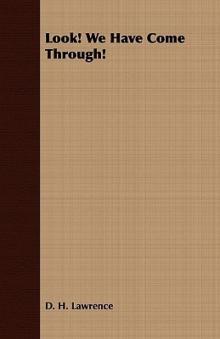 Look! We Have Come Through!
Look! We Have Come Through!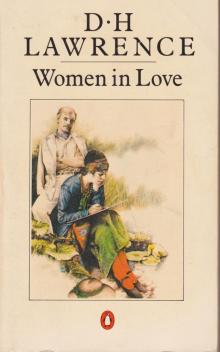 Women in Love
Women in Love The Ladybird
The Ladybird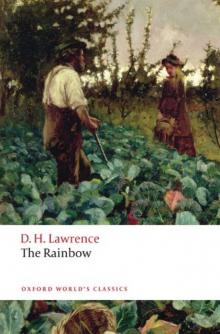 The Rainbow
The Rainbow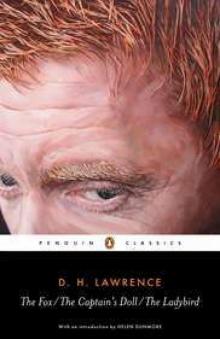 The Captain's Dol
The Captain's Dol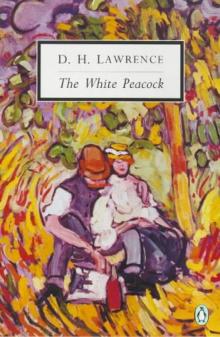 The White Peacock
The White Peacock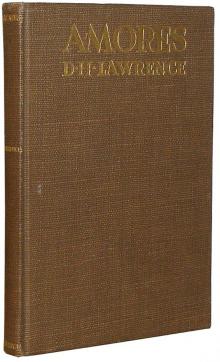 Amores
Amores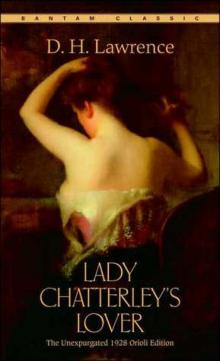 Lady Chatterley's Lover
Lady Chatterley's Lover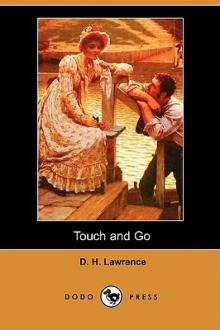 Touch and Go
Touch and Go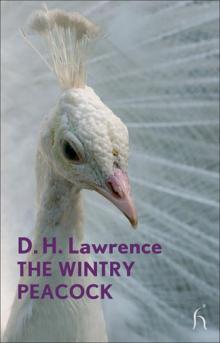 The Wintry Peacock
The Wintry Peacock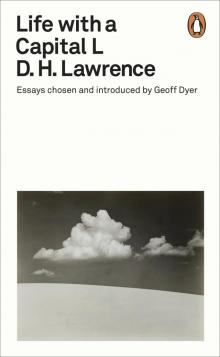 Life with a Capital L
Life with a Capital L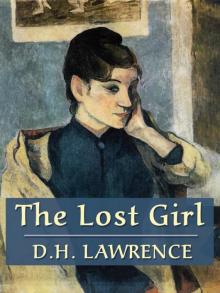 The Lost Girl
The Lost Girl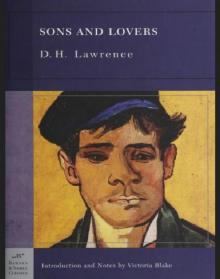 Sons and Lovers
Sons and Lovers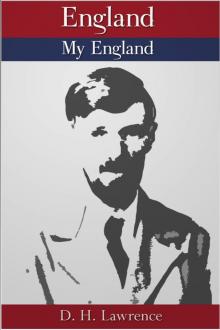 England, My England
England, My England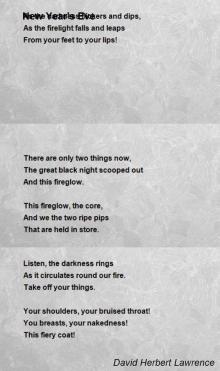 New Poems
New Poems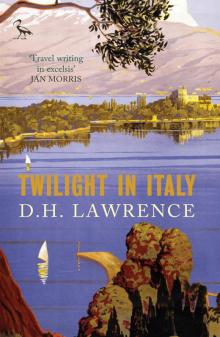 Twilight in Italy
Twilight in Italy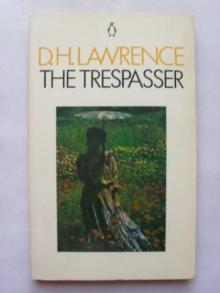 The Trespasser
The Trespasser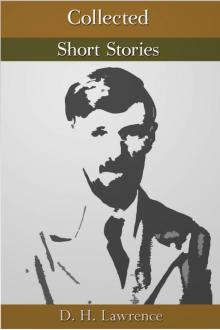 The Collected Short Stories
The Collected Short Stories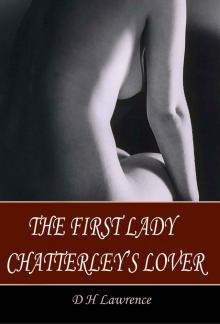 The First Lady Chatterley's Lover
The First Lady Chatterley's Lover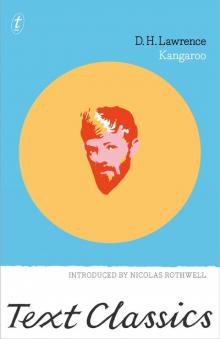 Kangaroo
Kangaroo Bay
Bay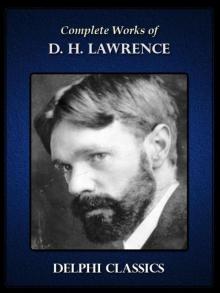 Complete Works of D.H. Lawrence
Complete Works of D.H. Lawrence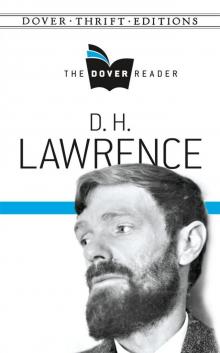 D H Lawrence- The Dover Reader
D H Lawrence- The Dover Reader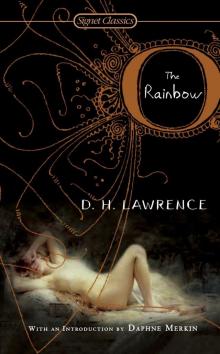 The Rainbow (100th Anniversary ed.)
The Rainbow (100th Anniversary ed.)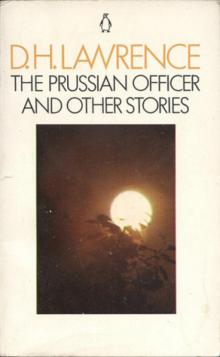 The Prussian Officer
The Prussian Officer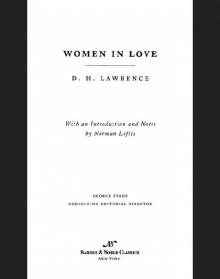 Women in Love (Barnes & Noble Classics Series)
Women in Love (Barnes & Noble Classics Series)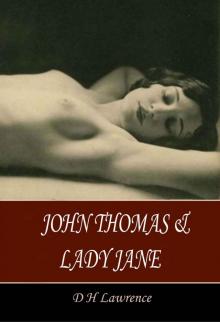 John Thomas and Lady Jane
John Thomas and Lady Jane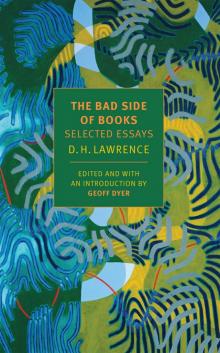 The Bad Side of Books
The Bad Side of Books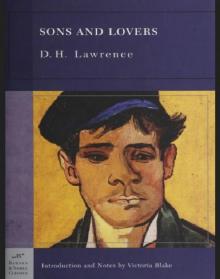 Sons and Lovers (Barnes & Noble Classics Series)
Sons and Lovers (Barnes & Noble Classics Series) Selected Stories
Selected Stories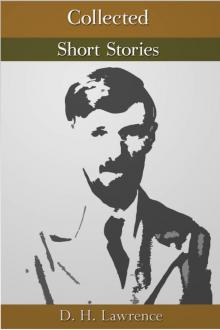 Collected Short Stories
Collected Short Stories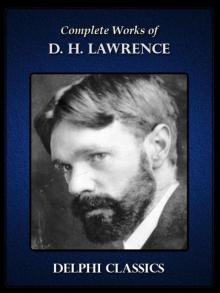 Complete Works of D.H. Lawrence (Illustrated)
Complete Works of D.H. Lawrence (Illustrated)